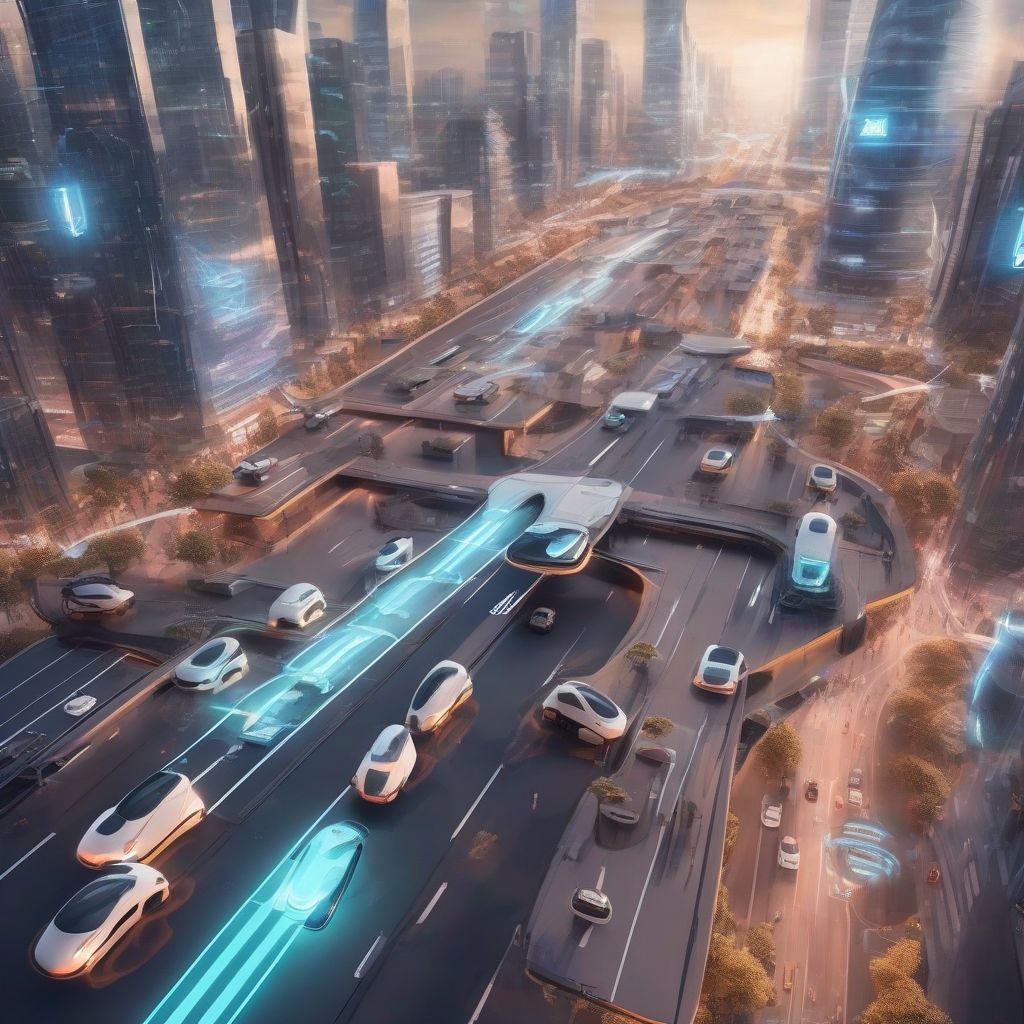Imagine a world where cars navigate bustling city streets without human intervention, where drones deliver packages with pinpoint accuracy, and where robots collaborate seamlessly in factories. This is not a scene from a science fiction movie; it’s the rapidly approaching reality fueled by the remarkable advancements in Artificial Intelligence (AI) and its transformative role in autonomous system development.
Understanding the Synergy: AI and Autonomous Systems
Before delving into the intricacies of AI’s influence, let’s clarify what we mean by “autonomous systems.” These are sophisticated systems capable of performing tasks and achieving goals without direct human control. Think self-driving cars, autonomous robots in manufacturing, or even smart home systems that adjust temperature and lighting based on your preferences.
AI empowers these systems with the ability to:
- Perceive and interpret their environment: Through computer vision, AI allows autonomous systems to “see” and understand their surroundings, identifying objects, obstacles, and even predicting potential hazards.
- Make decisions and navigate complex situations: AI algorithms, particularly machine learning, enable autonomous systems to learn from vast amounts of data, adapt to changing environments, and make optimal decisions in real-time.
- Continuously improve and optimize performance: By analyzing data from past experiences, AI helps autonomous systems refine their actions, enhance efficiency, and become increasingly reliable over time.
The Game-Changer: How AI is Revolutionizing Autonomous Systems
The impact of AI on autonomous systems is multifaceted and profound, ushering in a new era of possibilities:
1. Enhanced Perception and Navigation
AI is the driving force behind breakthroughs in sensor technology and data processing, enabling autonomous systems to perceive their surroundings with unprecedented accuracy. This is clearly evident in the evolution of self-driving cars. Using a combination of cameras, lidar, radar, and AI-powered perception algorithms, these vehicles can identify pedestrians, other vehicles, traffic signals, and even anticipate potential risks with remarkable precision.
2. Intelligent Decision-Making
One of AI’s most significant contributions is its ability to empower autonomous systems with intelligent decision-making capabilities. Machine learning algorithms, trained on massive datasets, enable these systems to learn from past experiences, adapt to changing conditions, and make informed decisions in real-time. This is crucial for applications like autonomous drones, where the ability to respond to unpredictable weather patterns or navigate around obstacles is essential for safe and efficient operation.
3. Increased Efficiency and Productivity
In industries like manufacturing and logistics, AI-powered autonomous systems are streamlining operations and boosting productivity. Robots equipped with AI can work tirelessly alongside human workers, performing repetitive tasks with precision, reducing errors, and freeing up human expertise for more complex and creative endeavors. This collaboration not only enhances efficiency but also paves the way for safer working environments.
4. Enabling New Possibilities
Beyond these practical applications, AI is unlocking entirely new frontiers for autonomous systems. In healthcare, AI-powered surgical robots are assisting surgeons with delicate procedures, enhancing precision and minimizing invasiveness. In exploration, autonomous underwater vehicles are mapping the ocean floor and gathering valuable data from depths inaccessible to humans. The possibilities are limitless, and AI is fueling the pace of innovation in this exciting field.
Addressing the Challenges and Ethical Considerations
While the potential benefits of AI in autonomous systems are vast, it’s crucial to acknowledge and address the challenges and ethical considerations that arise:
1. Safety and Reliability
Ensuring the safety and reliability of autonomous systems, particularly those operating in complex and unpredictable environments, is paramount. This requires rigorous testing, robust security measures, and ongoing research to improve the resilience of AI algorithms in the face of unexpected situations.
2. Ethical Decision-Making
As autonomous systems become increasingly sophisticated, questions arise about their ability to make ethical decisions, especially in morally ambiguous situations. Defining clear ethical guidelines for AI development and implementation is essential to ensure responsible innovation.
3. Job Displacement and Societal Impact
The widespread adoption of AI-powered autonomous systems has the potential to disrupt traditional job markets. It’s crucial to anticipate these changes, invest in workforce retraining, and foster a dialogue about the societal impact of these technologies.
The Road Ahead: A Future Shaped by AI and Autonomous Systems
The journey of AI in autonomous system development is just beginning. As research progresses and technology matures, we can expect even more transformative applications across various industries. From personalized healthcare to sustainable agriculture and beyond, the possibilities are as boundless as our imagination.
The key to unlocking this potential lies in collaboration, responsible innovation, and a commitment to harnessing the power of AI to create a future where autonomous systems enhance our lives, solve complex challenges, and drive progress for the benefit of humanity.
Conclusion
The transformative power of AI in autonomous system development is undeniable. From enhancing perception and navigation to enabling intelligent decision-making, AI is revolutionizing industries and opening up new possibilities across various sectors.
However, as we embrace this technological revolution, it is crucial to address the ethical considerations and challenges that arise. By prioritizing safety, transparency, and responsible innovation, we can harness the full potential of AI to create a future where autonomous systems work harmoniously with humans, improving our lives and shaping a brighter tomorrow.
Let’s continue to explore, innovate, and engage in meaningful discussions about the role of AI in shaping the future of autonomous systems and their impact on our world. Share your thoughts and join the conversation – the future is being written now!
 AI in Autonomous Systems
AI in Autonomous Systems
[amazon bestseller=”Autonomous Systems”]
